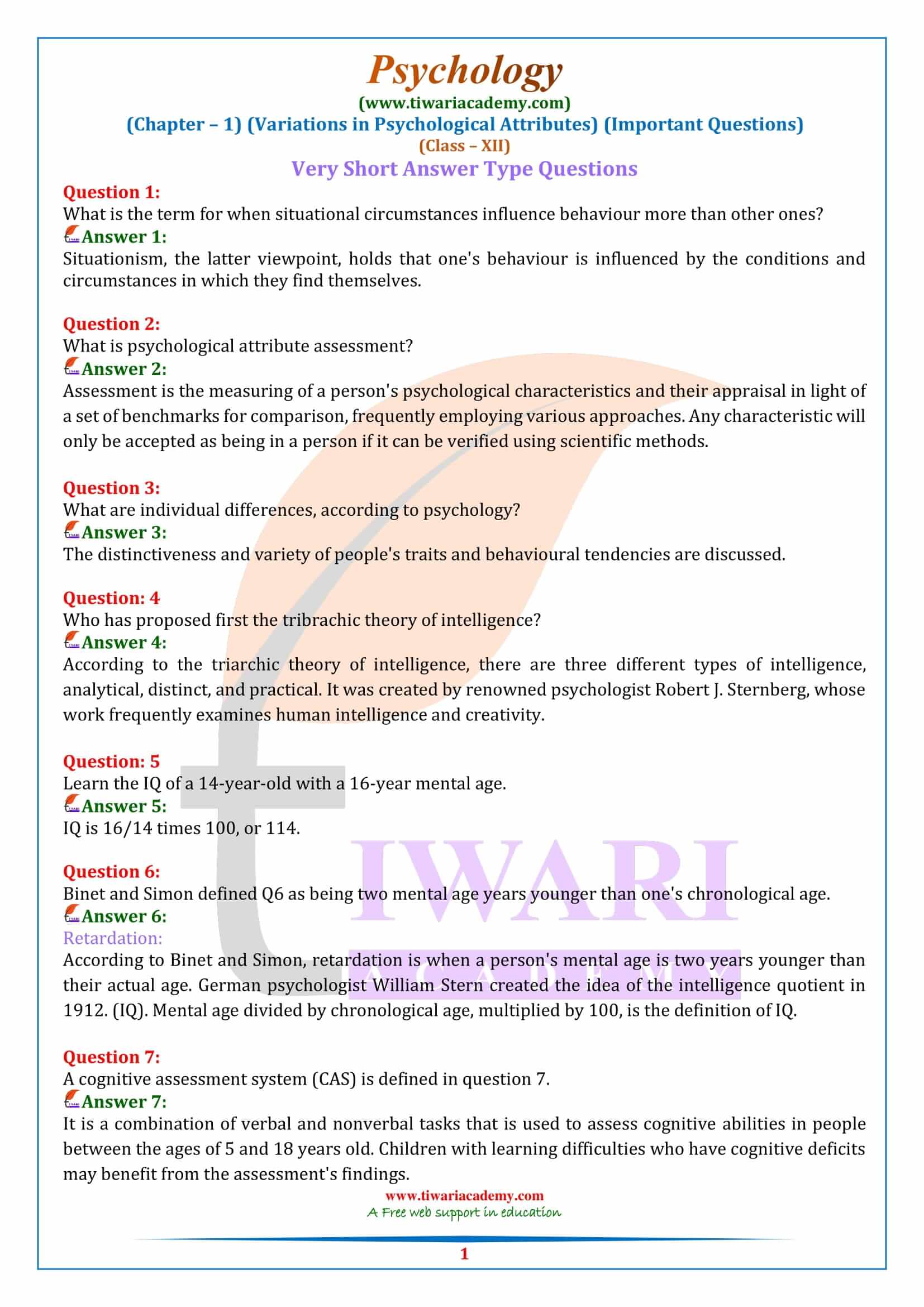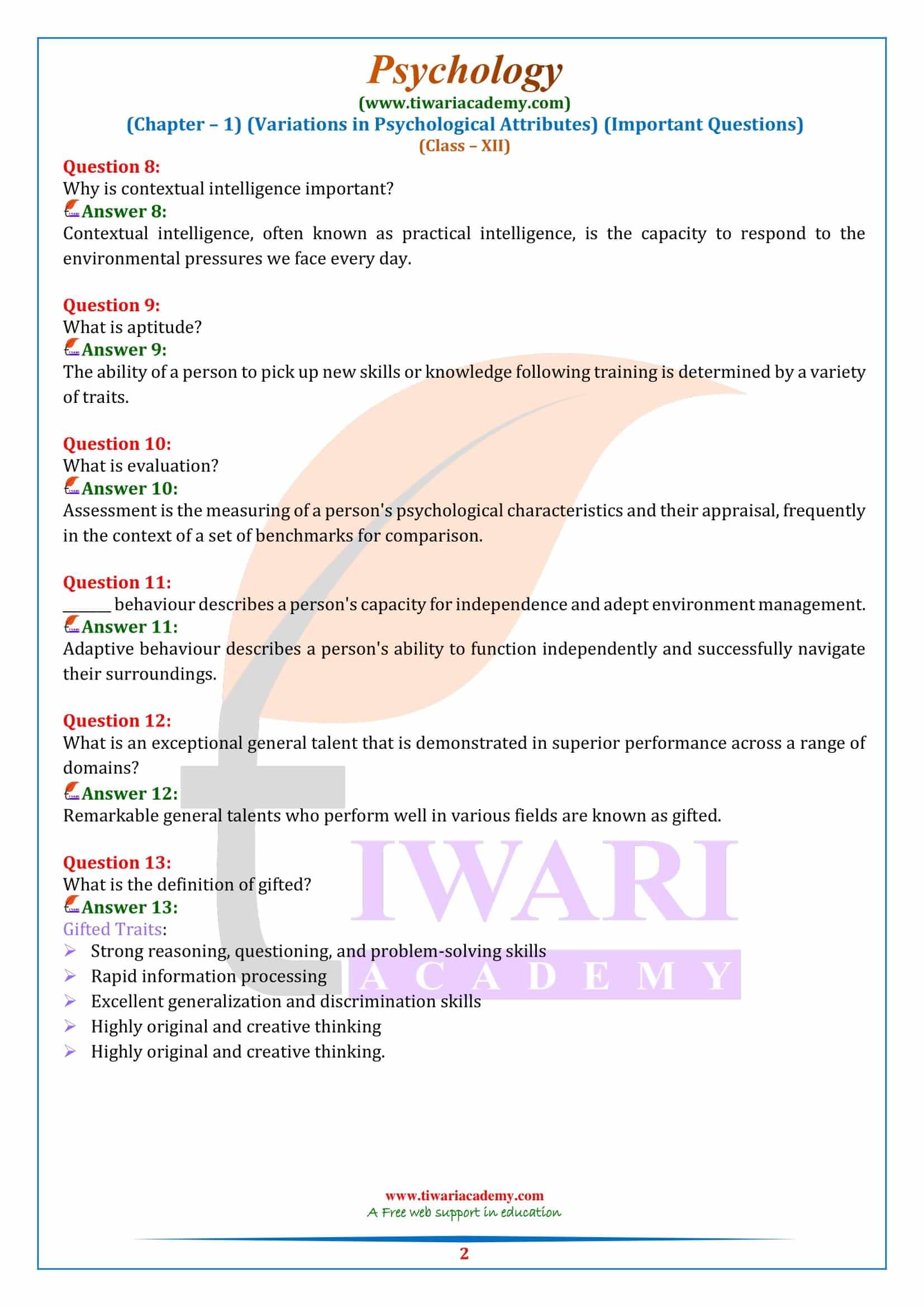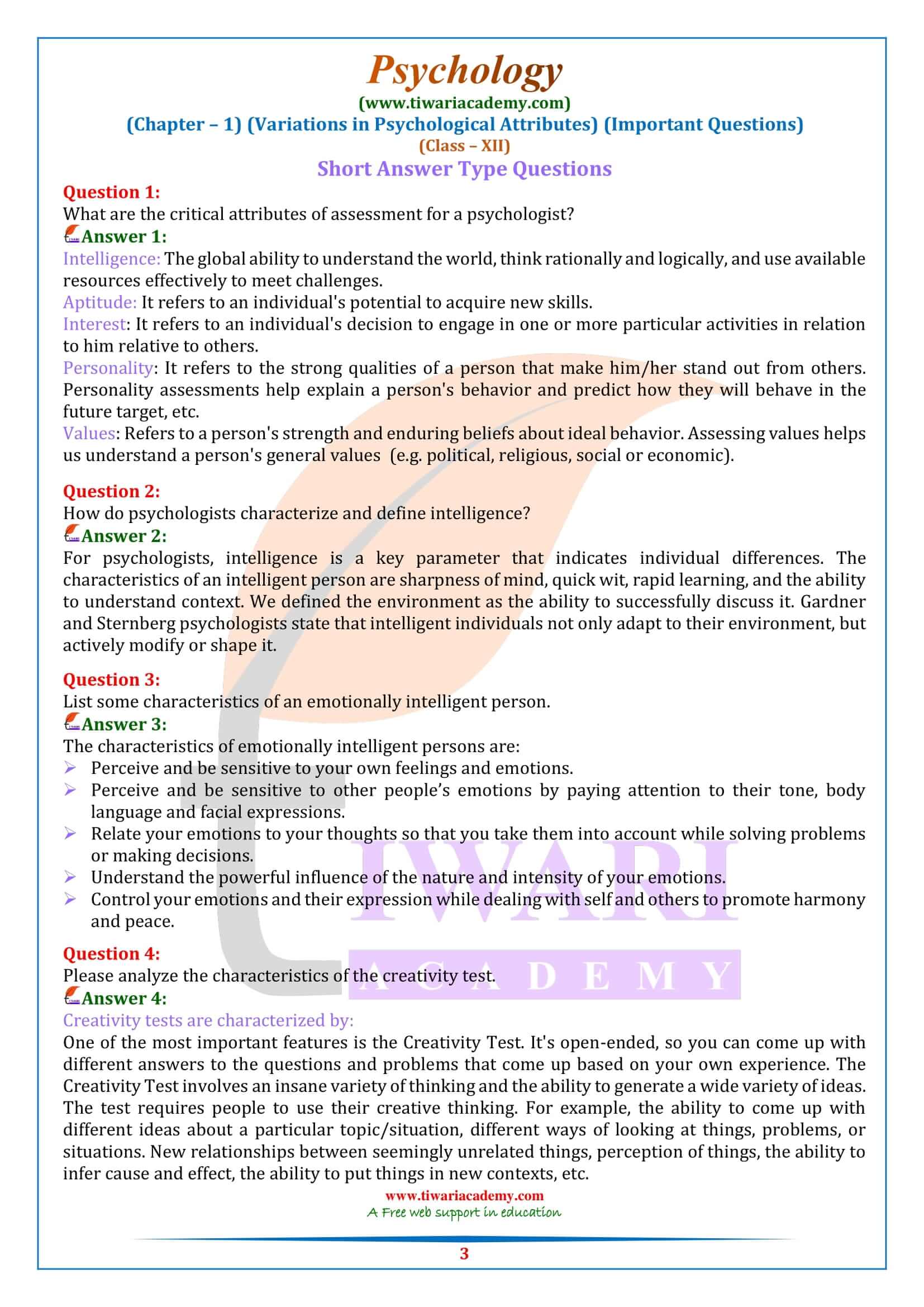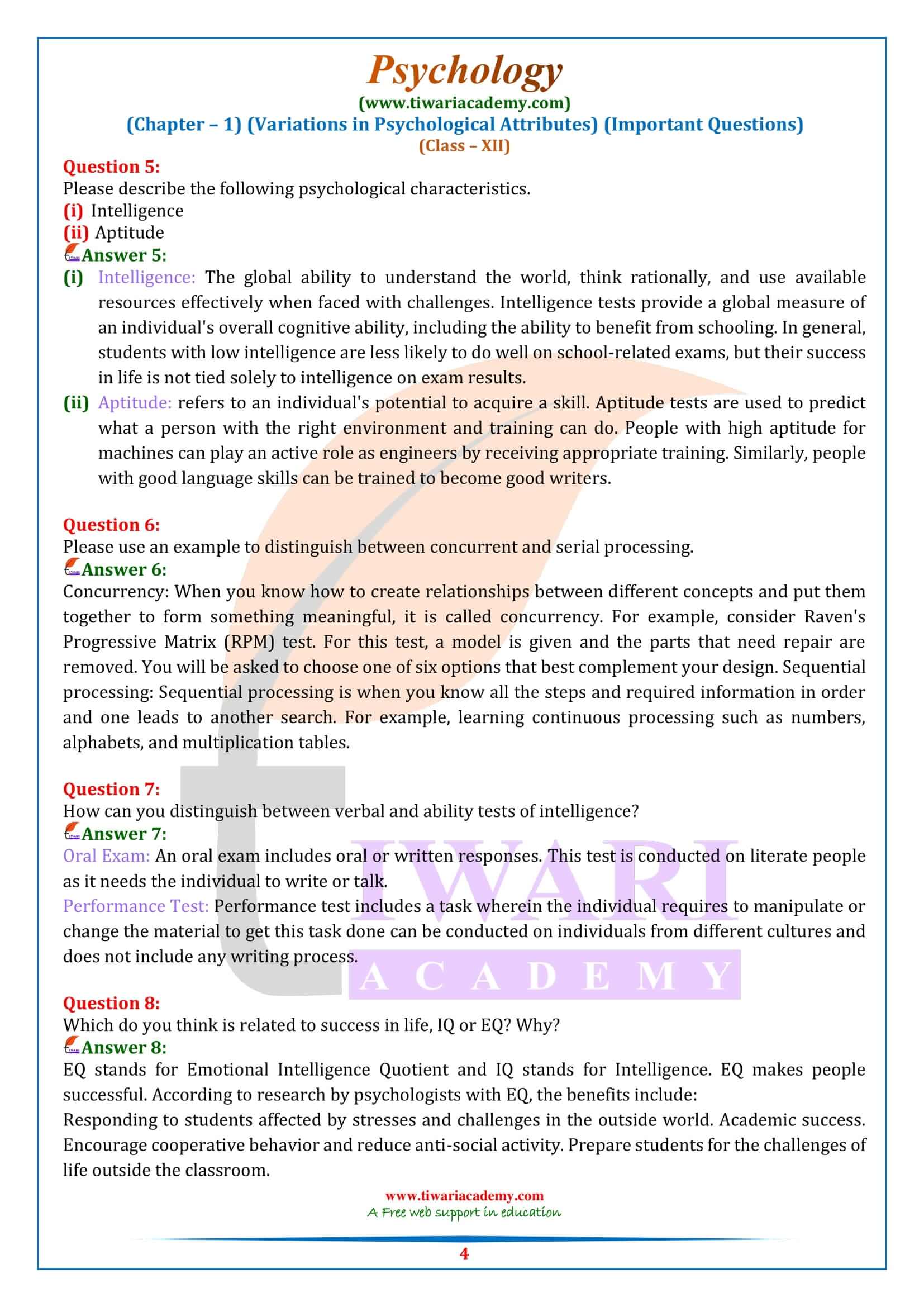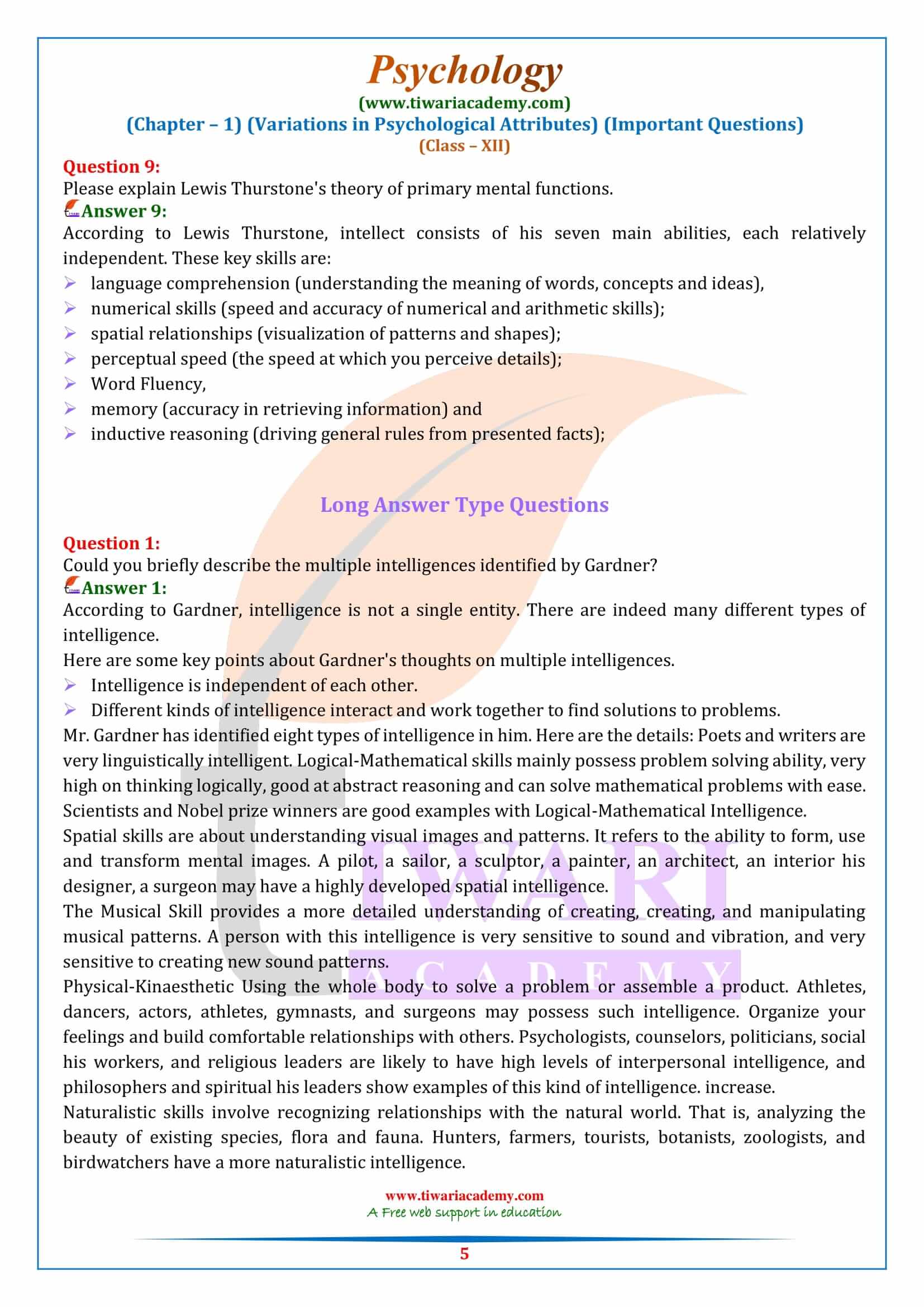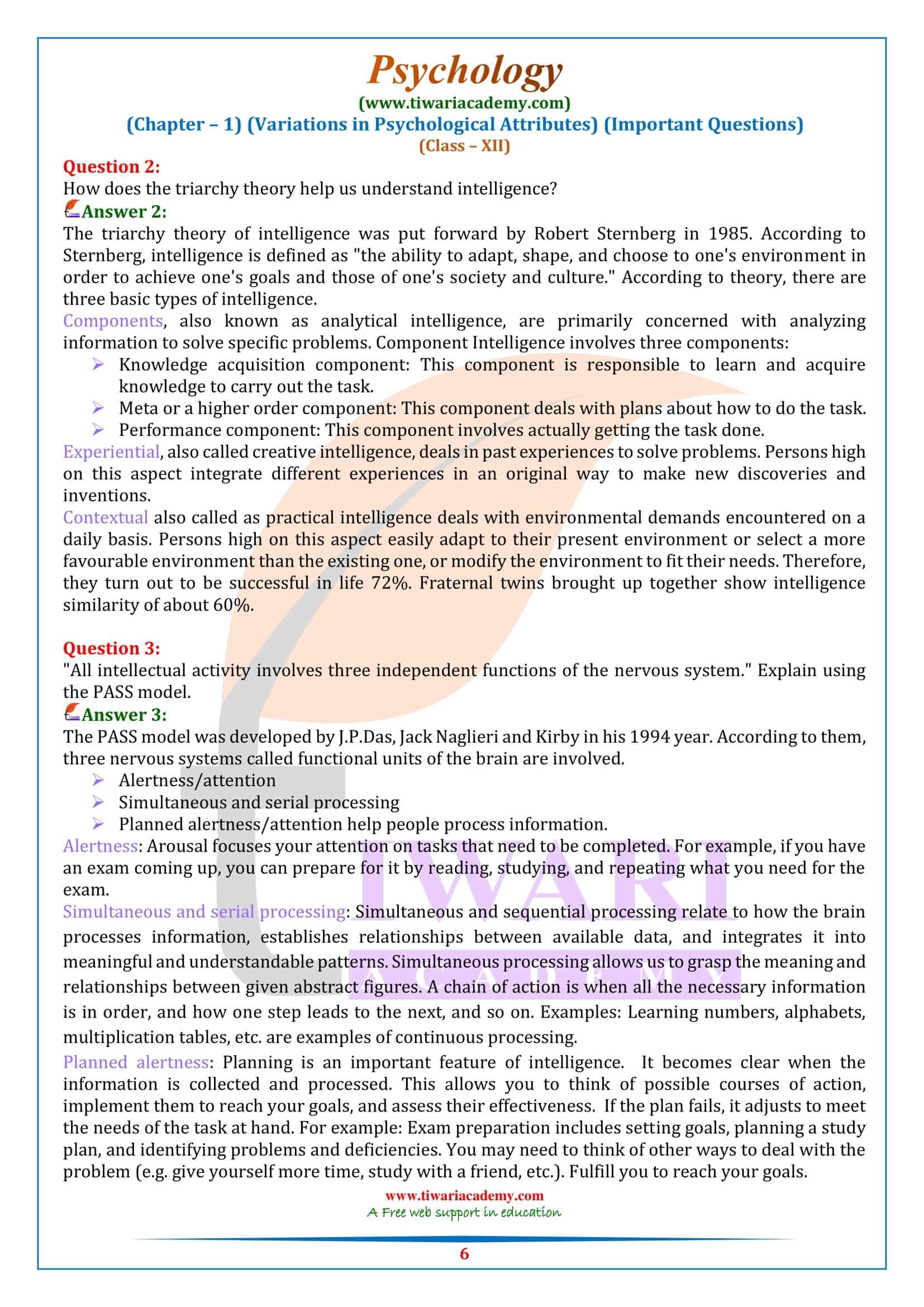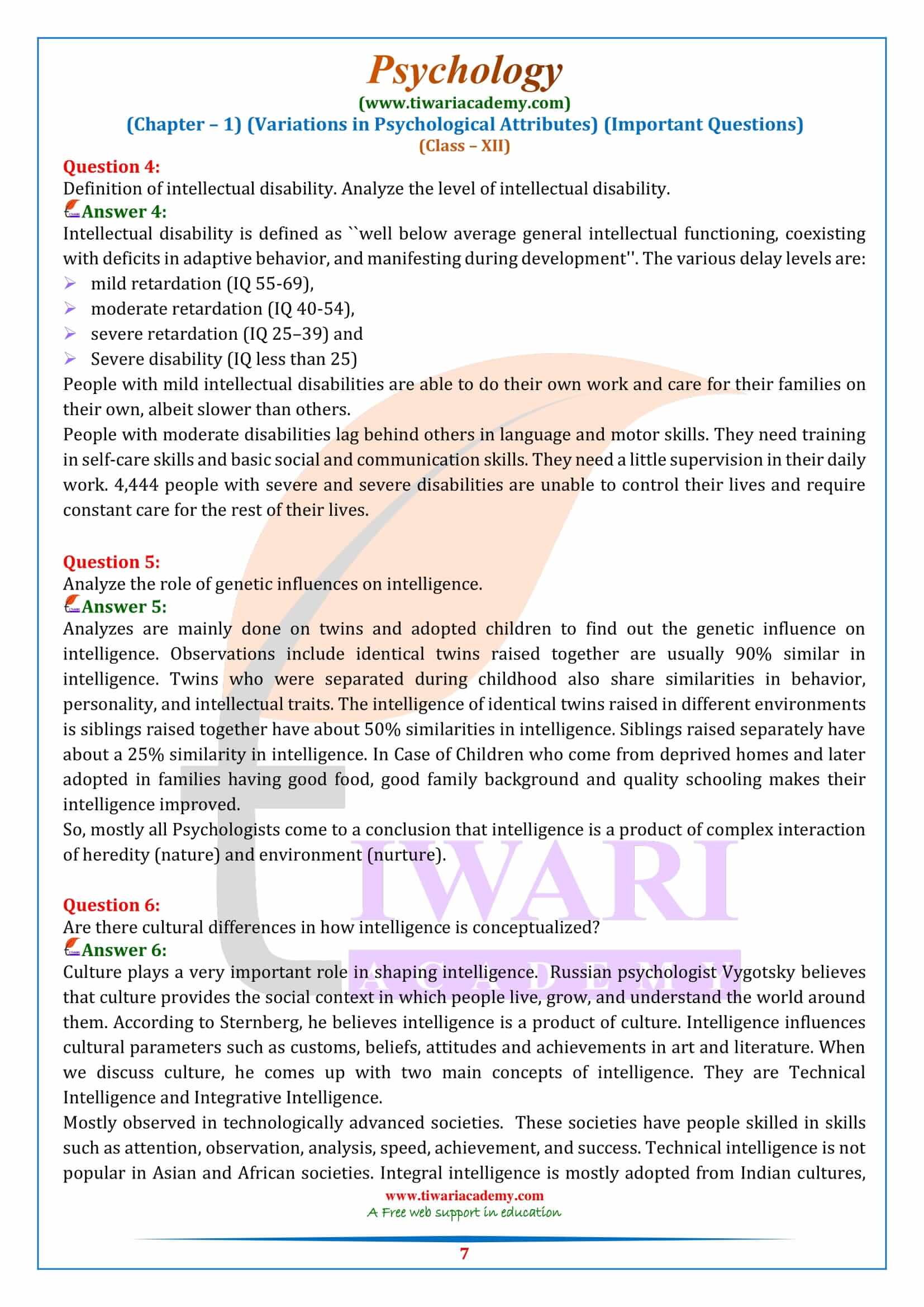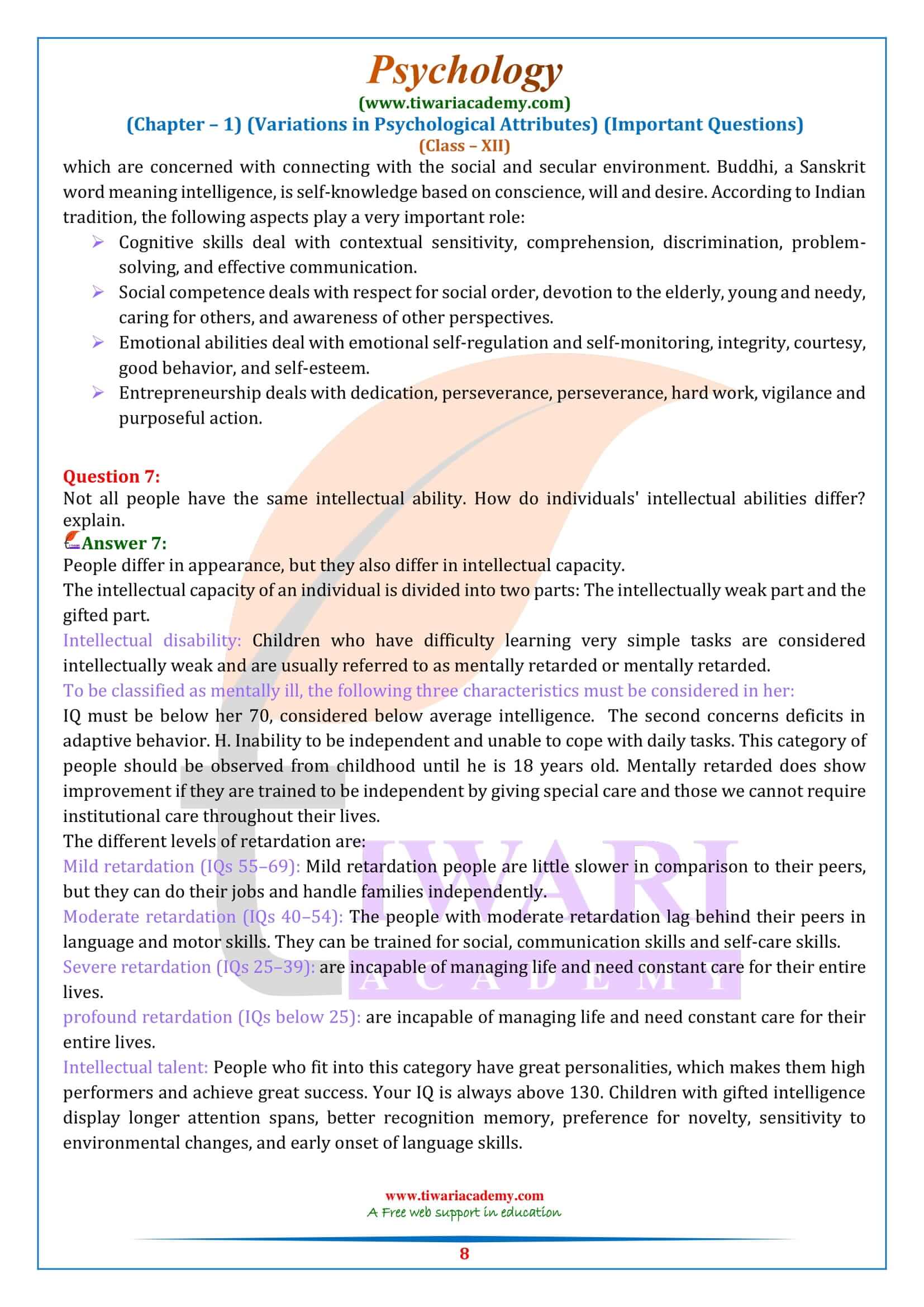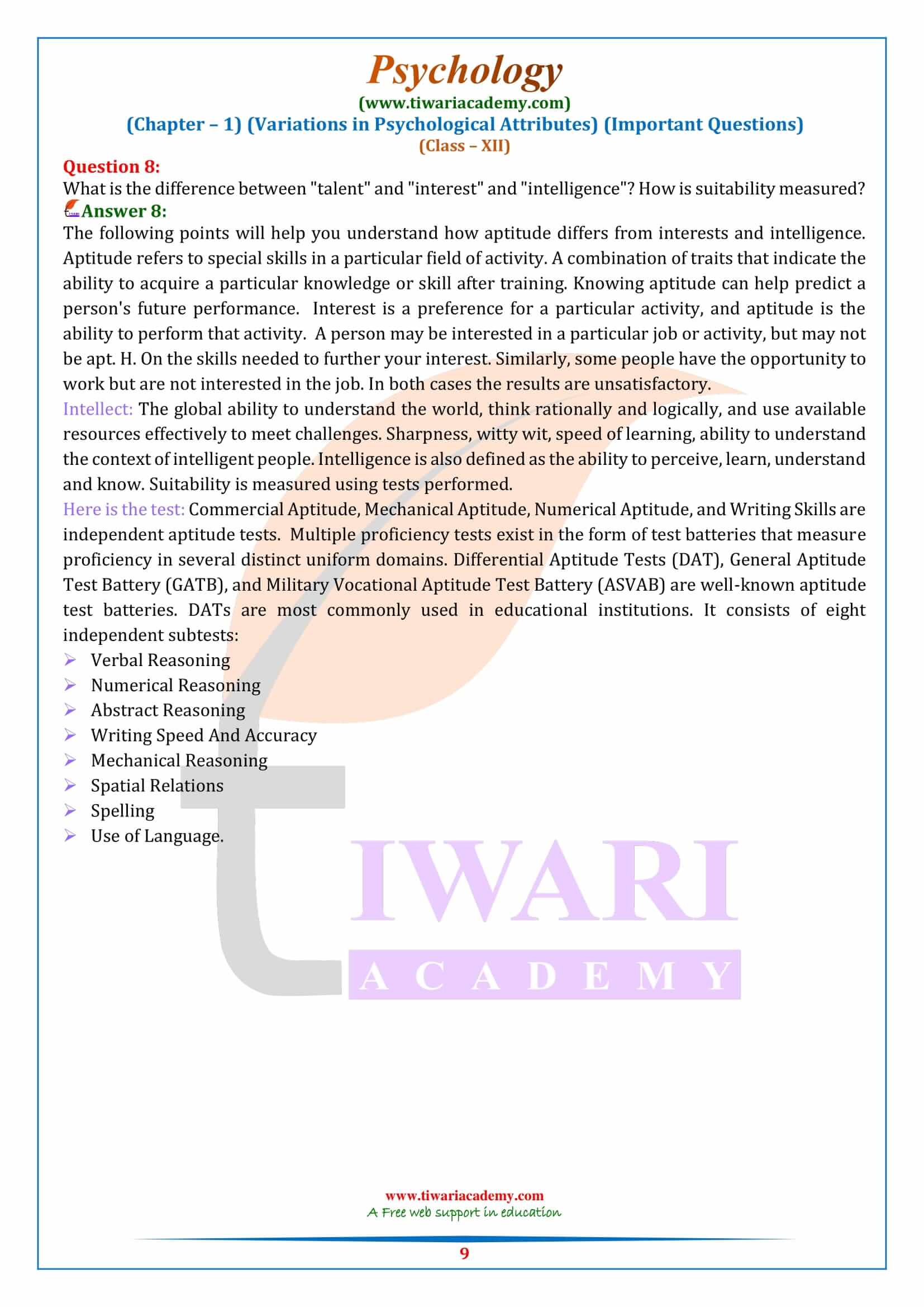Class 12 Psychology Chapter 1 Important Questions of Variations in Psychological Attributes with suitable answers and explanation for session 2025-26. Class 12 Psychology Chapter 1 Extra Questions are helpful for the preparation of topic during the exams.
Class 12 Psychology Chapter 1 Important Questions
Class 12 Psychology Chapter 1 Extra Questions Answers
What is psychological attribute assessment?
Assessment is the measuring of a person’s psychological characteristics and their appraisal in light of a set of benchmarks for comparison, frequently employing various approaches. Any characteristic will only be accepted as being in a person if it can be verified using scientific methods.
Who has proposed first the tribrachic theory of intelligence?
According to the triarchic theory of intelligence, there are three different types of intelligence, analytical, distinct, and practical. It was created by renowned psychologist Robert J. Sternberg, whose work frequently examines human intelligence and creativity.
Binet and Simon defined Q6 as being two mental age years younger than one’s chronological age.
Retardation:
According to Binet and Simon, retardation is when a person’s mental age is two years younger than their actual age. German psychologist William Stern created the idea of the intelligence quotient in 1912. (IQ). Mental age divided by chronological age, multiplied by 100, is the definition of IQ.
Why is contextual intelligence important?
Contextual intelligence, often known as practical intelligence, is the capacity to respond to the environmental pressures we face every day.
What is aptitude?
The ability of a person to pick up new skills or knowledge following training is determined by a variety of traits.
What is the definition of gifted?
Gifted Traits:
- Strong reasoning, questioning, and problem-solving skills
- Rapid information processing
- Excellent generalization and discrimination skills
- Highly original and creative thinking
- Highly original and creative thinking.
What are the critical attributes of assessment for a psychologist?
Intelligence: The global ability to understand the world, think rationally and logically, and use available resources effectively to meet challenges.
Aptitude: It refers to an individual’s potential to acquire new skills.
Interest: It refers to an individual’s decision to engage in one or more particular activities in relation to him relative to others.
Personality: It refers to the strong qualities of a person that make him/her stand out from others. Personality assessments help explain a person’s behavior and predict how they will behave in the future target, etc.
Values: Refers to a person’s strength and enduring beliefs about ideal behavior. Assessing values helps us understand a person’s general values (e.g. political, religious, social or economic).
How do psychologists characterize and define intelligence?
For psychologists, intelligence is a key parameter that indicates individual differences. The characteristics of an intelligent person are sharpness of mind, quick wit, rapid learning, and the ability to understand context. We defined the environment as the ability to successfully discuss it. Gardner and Sternberg psychologists state that intelligent individuals not only adapt to their environment, but actively modify or shape it.
Please use an example to distinguish between concurrent and serial processing.
Concurrency: When you know how to create relationships between different concepts and put them together to form something meaningful, it is called concurrency. For example, consider Raven’s Progressive Matrix (RPM) test. For this test, a model is given and the parts that need repair are removed. You will be asked to choose one of six options that best complement your design. Sequential processing: Sequential processing is when you know all the steps and required information in order and one leads to another search. For example, learning continuous processing such as numbers, alphabets, and multiplication tables.
How can you distinguish between verbal and ability tests of intelligence?
Oral Exam: An oral exam includes oral or written responses. This test is conducted on literate people as it needs the individual to write or talk.
Performance Test: Performance test includes a task wherein the individual requires to manipulate or change the material to get this task done can be conducted on individuals from different cultures and does not include any writing process.
Please analyze the characteristics of the creativity test.
Creativity tests are characterized by:
One of the most important features is the Creativity Test. It’s open-ended, so you can come up with different answers to the questions and problems that come up based on your own experience. The Creativity Test involves an insane variety of thinking and the ability to generate a wide variety of ideas. The test requires people to use their creative thinking.
For example, the ability to come up with different ideas about a particular topic/situation, different ways of looking at things, problems, or situations. New relationships between seemingly unrelated things, perception of things, the ability to infer cause and effect, the ability to put things in new contexts, etc.
